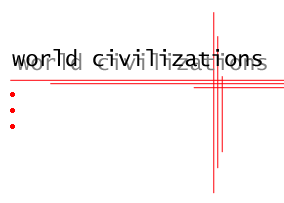MATERIAL CULTURE IN HISTORY: THE CASE OF JUNO CIGARETTES BERLIN BUSES AND THE HOLOCAUST
January 6, 2010 at 12:29 pm | Posted in Art, Books, Germany, History, Judaica, Literary | Leave a comment
Material Culture:
The Case of Juno Cigarettes
The advertising banner “Berlin Raucht Juno” (“Berlin smokes Juno cigarettes”) is visible on the sides of buses in several movies such as “The Life and Times of Colonel Blimp”(1943) and “Night Train to Munich.”(1940).
These movie scenes show pre-war and wartime Berlin.
In the book, “Berlin: the Twenties” (Harry Abrams, 2007) a famous photo of Potsdamer Platz, “the Times Square of Berlin”, from 1930, is shown on pages 26 and 27 where a Berlin bus with the “Berlin Raucht Juno” ad banner is seen running along the top of the bus.
Book: Berlin: The Twenties
by Rainer Metzger and Christian Brandstetter
(Hardcover – May 1, 2007)
“Berlin,” a haunting vision of the twentieth century’s first modern city, is a cultural history filled with 400 shockingly fresh and romantic photographs, paintings, and other images.
In the brief years between the twentieth century’s two cataclysmic world wars, the modern metropolis was invented in Berlin.
Life in Berlin was a cabaret, and Marlene Dietrich, Thomas Mann, Alfred Einstein, or Joseph Goebbels might be seated at the next table. The avant-garde thrived there. The mass media magnified the impact of everything from fads to political ideas. Subcultures and club cultures nurtured gender-bending fashions and lifestyles. Architects and designers struggled to free themselves from the past.
In the background beat the new rhythms of urban experience: the coming and going of the latest planes and trains and automobiles, the clacking of typewriters in vast offices, the jazz band that never sleeps.
“Berlin: The Twenties”
Material Culture:
The Case of Juno Cigarettes II
“Why are Junos round?”
“Władysław Szlengel (1914- 1943). One of few poets who lived and wrote poetry in the Ghetto till the very end, poetry that was passed hand to hand. He wrote the poem “Kontratak” in the wake of the armed resistance that met the entry of German units on January 19, 1943. In the three remaining months of the Ghetto’s existence, the poem became akin to the Ghetto’s anthem. Szlengel perished in the Uprising. The poem was found years later hidden between the leaves of a table.”
Władysław Szlengel Counterattack
January 18, 1943
Peacefully they walked to the train,
Sick and tired of the daily battle,
Doggedly gaze into the brutal eyes did
The cattle.
The handsome officers gloated
That they are bothered by nothing,
That with a dull step the hordes are marching,
And only for diversion
The whips cracked,
Slashing their faces!
The throng in silence sank to the ground,
Before it dissolved in sobs in cattle cars,
Their blood and tears,
Trickling into the sandy ground,
And the Herrenvolk
Carelessly tossed
little boxes
on the corpses — “Warum sind Juno rund?”
Then, on that day,
When on the Stimmung lulled city
They pounced like hyenas in dawn’s early mist,
Then the cattle awakened
And
Bared its teeth . . .
On Miťa Street the first shot was heard,
A gendarme staggered at the gate,
He stared surprised–stood still for a moment,
Patted his shattered arm–
Didn’t believe it.
Something is not right,
Everything went so smooth and straight,
As a favor, because of special influence,
He was turned back from the Eastern Front
(Had a few satisfying days),
Rested in Warsaw,
Driving this cattle in an Aktion,
And cleaning up this pigsty,
But here,
On Mi~la street, BLOOD
The gendarme pulled back from the gate
And swore: I’m really bleeding,
But here Braunings were barking
On Niska,
On Dzika,
On Pawia.
On the crooked stairway,
Where an old mother
Was dragged by the hair,
Lies SS-man Handtke,
Strangely puffed up,
As if he couldn’t digest death,
As if he choked on the revolt.
He belched, spitting up blood
Into the little box — Juno sind rund, rund, rund.
Golden epaulets crush the dust,
Everything spins around,
The sky-blue uniform lies
On the spittle-covered stairs
Of the Jewish Pawia Street
And doesn’t know
That at Schultz and Toebbens
Bullets whirl in a joyous song,
REVOLT OF THE MEAT,
REVOLT OF THE MEAT,
REVOLT OF THE MEAT!
Meat spits grenades out the windows.
Meat belches out scarlet flames
And clings to the edges of life!
Hey! What joy to shoot in the eye!
THIS IS THE FRONT, MY LORDS!
THE FRONT – GENTLEMEN SHIRKERS
HIER TRINKT MAN MEHR BIER,
HIER HAT MAN MEHR MUT,
BLUT BLUT BLUT!
Peal off the fair, smooth, leather gloves,
Put your whips aside and helmets on.
Tomorrow issue a press release:
“Penetrated the lines of Toebbens’ block.
Revolt of the meat,
REVOLT OF THE MEAT,
SONG OF THE MEAT!
Hear, O German God,
How the Jews, in the “wild” houses pray,
Clenching in the fist a stick, a stone.
We beg you, O God, for a bloody battle,
We implore you for a violent death,
Let our eyes not see, before we expire,
The stretch of the train tracks,
But let the precise aim of our hand, O Lord,
Stain their livid uniforms with blood,
Let us see, before the mute groan
Shreds our throats,
Our simple human fear in their
Haughty hands, in their whip-wielding paws.
From Niska, Mi-la, and Muranowska Streets,
Like scarlet flowers of blood,
Sprout the flames of our gunbarrels.
This is our Spring! Our Counterattack!
The intoxication of our battle!
These are our partisan forests:
The alleys of Dzika and Ostrowska Streets.
“Block” numbers quiver on breasts,
Medals of the Jewish war.
The cry of six letters flashes in red,
Like a battering ram bellows the word: REVOLT
And on the street, the bloodied.
Trampled packet:
JUNO SIND RUND!
Juno was the name of a German cigarette brand and “Juno sind rund !” (“Juno cigarettes are round!”) was the brand’s advertising slogan.
Władysław Szlengel (1914- 1943). One of few poets who lived and wote poetry in the Ghetto till the very end, poetry that was passed hand to hand. He wrote the poem “Kontratak” in the wake of the armed resistance that met the entry of German units on January 19, 1943. In the three remaining months of the Ghetto’s existence, the poem became akin to the Ghetto’s anthem. Szlengel perished in the Uprising. The poem was found years later hidden between the leaves of a table.
This poem is shown on pages 69-71 of the Holocaust memoir, “I Remember Nothing More,” of Adina Blady Szwajger, Pantheon Books, NY, 1990.
A footnote on page 69 of this book reads:
“Juno cigarettes were round, like today’s cigarettes, at a time when most cigarettes were flat.”











